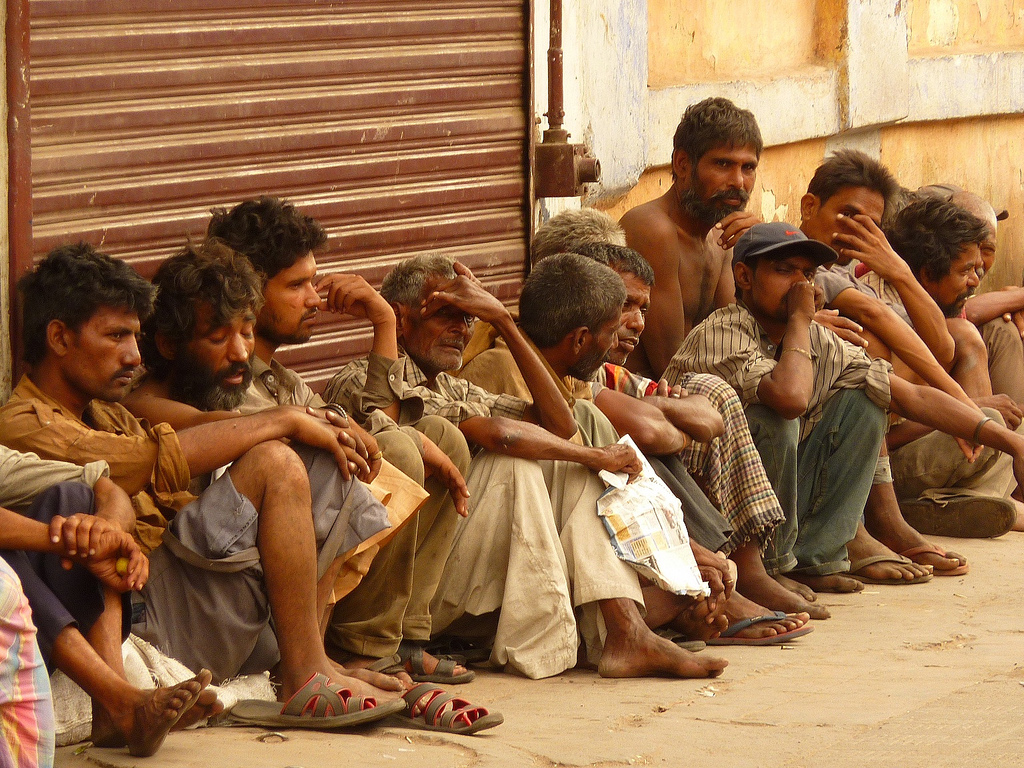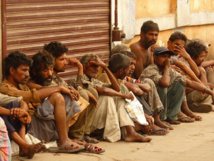The quest for equality has become a powerful driving force of human history. Equality was one of the ideals of the French Revolution. Liberte, egalite, fraternite ou la mort, remember? The Russian Revolution and the other socialist revolutions that followed it, had the idea of equality as a driving force too. Many industrial strikes, demonstrations, revolutions, and countless other human conflict would not have occurred without the pursuit of equality.
Inequality can be easily measured by income and wealth. For this purpose, there is the Gini coefficient, named after the Italian statistics of the early twentieth century, Corrado Gini. The greater the value of the coefficient deviates from zero and approaches unity, the more money is concentrated in the hands of individual groups.
No society, equal to the maximum in terms of ideology and politics, is not able to provide its members with full equality (Gini coefficient = 0). In a society where the Gini coefficient is equal to 1, everyone has absolutely equal rights, except for one person who is likely to die soon, thereby reducing the Gini coefficient to 0, after what we get a completely equal society - without a single person. In the real world, there is no country with a Gini coefficient below 0.2 and above 0.75.
The most equitable societies are mainly concentrated in Europe - their Gini coefficients are between 0.2 and 0.3. Many of them - developed capitalist countries with a good social security system, for example (in alphabetical order): Austria, Belgium, Denmark, Finland, France, Germany, the Netherlands, Norway (the country with the most equal income distribution in the world), and Sweden.
At the other end are countries, where Gini coefficients exceed 0.6: Botswana, Madagascar, Namibia and South Africa (in alphabetical order). All of them are located in South Africa.
Any country with a Gini coefficient above 0.5 can be considered as very unequal. Latin America has plenty of them: Bolivia, Brazil, Chile, Colombia, Costa Rica, Honduras, Panama and Paraguay. But some of them are located in Africa (Côte d'Ivoire, Mauritania and Rwanda) and Asia (Cambodia, the Philippines and Thailand). A one country in the territory of the former socialist bloc - Georgia - also belongs to this group.
Gini coefficients in most other countries are distributed between 0.3 and 0.5. The US and China are on the edge of the pole of the distribution, where a larger gap - 0.45-0.5 – is observed. Countries such as Uganda, Poland, New Zealand and Italy are balancing on the other side (about 0.3). Roughly speaking, the Gini coefficient of 0.35 is the boundary between relatively equal countries and those that are not
According to a widely used assessment of Bourguignon and Morrison, the global Gini coefficient was about 0.5 in 1820 and increased to 0.61 in 1910, 0.64 in 1950 and 0.66 in 1992. Thus, if the world had only one country two centuries ago, it started as a very unequal, like Panama or Rwanda, and had grown to a highly unequal as South Africa, though, may have become a little bit, just a little less unequal since 1990, largely thanks to China, which is becoming a prosperous country fast.
But these figures are less reliable than the national Gini coefficient. The global Gini coefficient is not very relevant, because the world is not a true community.
To better understand this idea, let’s do a little thought experiment. Suppose you were told that scientists have found 55 planets within our galaxy with intelligent beings that are much richer than the earthlings, and have a huge income gap between them, with the Gini coefficient cosmically huge. Would you be very upset about it? Probably not, because actually you do not know that there are some creatures, and cannot even imagine how they live.
From an early age, starting with the Disney cartoon, which says that we can achieve anything we wish, if we believe in ourselves, we are engulfed with messages that nobody but we are responsible for what we get in our life . We are made to accept what is called the principle of L'Oreal: if some people pay tens of millions of pounds a year, it is because they "deserve that."
The implication is that if people are poor, it is because they are not good enough or not enough efforts are applied. In the end, people are responsible for what they do with their lives. Even if people in general come from the same environment, eventually they end up with different position, since they have different talents in different areas and are making various efforts of different types.
Some causes for poverty are structural in the sense that they do not depend on the individual. Malnutrition in childhood, the lack of incentives for training, and schools that provide knowledge below the average (common in poor areas) are limiting the development of poor children, reducing their prospects for the future.
Parents are to some extent able to control how much incentive to learn have their children, and what their ration is. And some poor parents, to their credit, have made great efforts to give their children the most out of it, unlike other parents in similar circumstances - but even their capabilities are limited.
People from poor families certainly meet more obstacles even on the way of desiring to climb the social ladder and overcoming the hardships of childhood. The lack of personal relationships and cultural gap often mean that people from disadvantaged sectors of society are unfairly discriminated when applying for a job and moving up the career ladder. If they lucky enough to have other improper characteristics - in terms of gender, race, caste, religion, sexual orientation, - it will be even harder to get a fair chance to demonstrate their abilities.
Inequalities will always exist, but we will be able to live in societies equal in terms of income and opportunities, if we adopt the relevant policies – and many Norwegians, Finns, Swedes and Danes would willingly tell you this.
based on 'Economics: The User's Guide' by Chang Ha-Joon
Inequality can be easily measured by income and wealth. For this purpose, there is the Gini coefficient, named after the Italian statistics of the early twentieth century, Corrado Gini. The greater the value of the coefficient deviates from zero and approaches unity, the more money is concentrated in the hands of individual groups.
No society, equal to the maximum in terms of ideology and politics, is not able to provide its members with full equality (Gini coefficient = 0). In a society where the Gini coefficient is equal to 1, everyone has absolutely equal rights, except for one person who is likely to die soon, thereby reducing the Gini coefficient to 0, after what we get a completely equal society - without a single person. In the real world, there is no country with a Gini coefficient below 0.2 and above 0.75.
The most equitable societies are mainly concentrated in Europe - their Gini coefficients are between 0.2 and 0.3. Many of them - developed capitalist countries with a good social security system, for example (in alphabetical order): Austria, Belgium, Denmark, Finland, France, Germany, the Netherlands, Norway (the country with the most equal income distribution in the world), and Sweden.
At the other end are countries, where Gini coefficients exceed 0.6: Botswana, Madagascar, Namibia and South Africa (in alphabetical order). All of them are located in South Africa.
Any country with a Gini coefficient above 0.5 can be considered as very unequal. Latin America has plenty of them: Bolivia, Brazil, Chile, Colombia, Costa Rica, Honduras, Panama and Paraguay. But some of them are located in Africa (Côte d'Ivoire, Mauritania and Rwanda) and Asia (Cambodia, the Philippines and Thailand). A one country in the territory of the former socialist bloc - Georgia - also belongs to this group.
Gini coefficients in most other countries are distributed between 0.3 and 0.5. The US and China are on the edge of the pole of the distribution, where a larger gap - 0.45-0.5 – is observed. Countries such as Uganda, Poland, New Zealand and Italy are balancing on the other side (about 0.3). Roughly speaking, the Gini coefficient of 0.35 is the boundary between relatively equal countries and those that are not
According to a widely used assessment of Bourguignon and Morrison, the global Gini coefficient was about 0.5 in 1820 and increased to 0.61 in 1910, 0.64 in 1950 and 0.66 in 1992. Thus, if the world had only one country two centuries ago, it started as a very unequal, like Panama or Rwanda, and had grown to a highly unequal as South Africa, though, may have become a little bit, just a little less unequal since 1990, largely thanks to China, which is becoming a prosperous country fast.
But these figures are less reliable than the national Gini coefficient. The global Gini coefficient is not very relevant, because the world is not a true community.
To better understand this idea, let’s do a little thought experiment. Suppose you were told that scientists have found 55 planets within our galaxy with intelligent beings that are much richer than the earthlings, and have a huge income gap between them, with the Gini coefficient cosmically huge. Would you be very upset about it? Probably not, because actually you do not know that there are some creatures, and cannot even imagine how they live.
From an early age, starting with the Disney cartoon, which says that we can achieve anything we wish, if we believe in ourselves, we are engulfed with messages that nobody but we are responsible for what we get in our life . We are made to accept what is called the principle of L'Oreal: if some people pay tens of millions of pounds a year, it is because they "deserve that."
The implication is that if people are poor, it is because they are not good enough or not enough efforts are applied. In the end, people are responsible for what they do with their lives. Even if people in general come from the same environment, eventually they end up with different position, since they have different talents in different areas and are making various efforts of different types.
Some causes for poverty are structural in the sense that they do not depend on the individual. Malnutrition in childhood, the lack of incentives for training, and schools that provide knowledge below the average (common in poor areas) are limiting the development of poor children, reducing their prospects for the future.
Parents are to some extent able to control how much incentive to learn have their children, and what their ration is. And some poor parents, to their credit, have made great efforts to give their children the most out of it, unlike other parents in similar circumstances - but even their capabilities are limited.
People from poor families certainly meet more obstacles even on the way of desiring to climb the social ladder and overcoming the hardships of childhood. The lack of personal relationships and cultural gap often mean that people from disadvantaged sectors of society are unfairly discriminated when applying for a job and moving up the career ladder. If they lucky enough to have other improper characteristics - in terms of gender, race, caste, religion, sexual orientation, - it will be even harder to get a fair chance to demonstrate their abilities.
Inequalities will always exist, but we will be able to live in societies equal in terms of income and opportunities, if we adopt the relevant policies – and many Norwegians, Finns, Swedes and Danes would willingly tell you this.
based on 'Economics: The User's Guide' by Chang Ha-Joon



















